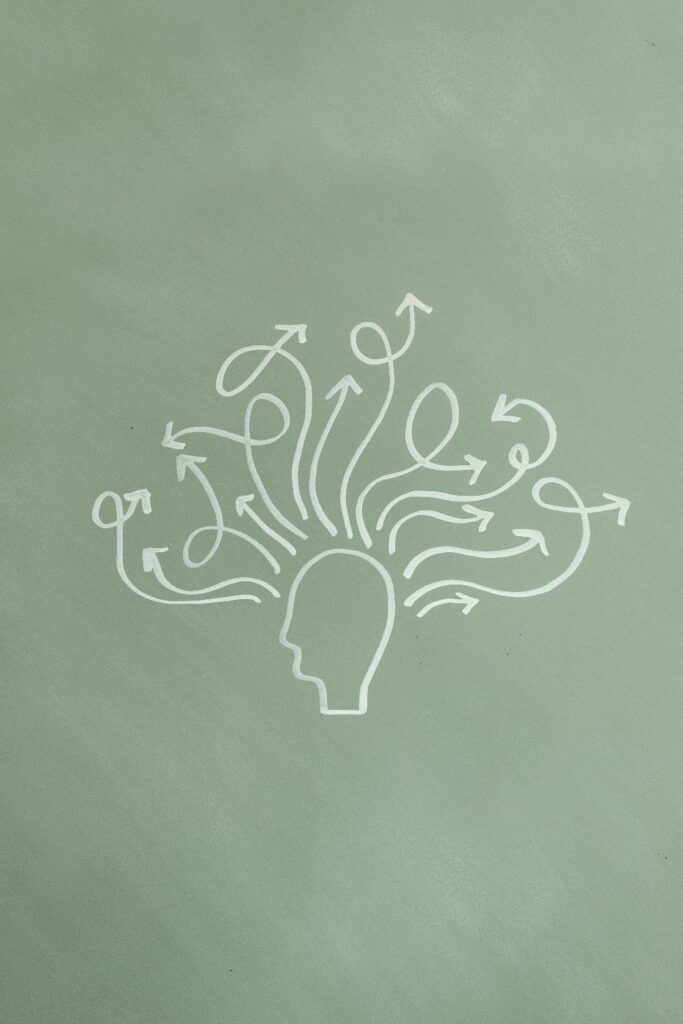Foundations of Authenticity: Bridging Classical Wisdom and Modern Psychology

Photo by cottonbro studio
Authenticity is more than a personal trait; it’s a key to genuine connections and self-awareness. Today, with endless distractions and influences, staying true to oneself is harder than ever. By blending classical wisdom with insights from modern psychology, we can better understand how to nurture deeper authenticity in our lives. These timeless principles, paired with current research, offer a clear path to becoming a more authentic version of yourself.
Understanding Authenticity
Authenticity holds immense power in shaping how we connect with the world and with each other. Whether in personal relationships or professional environments, being genuine can dramatically improve the quality of our interactions. But what does it mean to live authentically? It’s about aligning your actions, choices, and communication with your true self. Let’s dive into why this concept is essential today and how a broader perspective enhances our understanding of authenticity.
The Importance of Authenticity Today

Photo by Tima Miroshnichenko
In an era dominated by curated social media and constant external validation, authenticity is a rarity. Yet, it is the foundation of meaningful connections. When you’re authentic, you create room for trust and mutual understanding. Think about it—would you rather interact with someone who is open, honest, and true to themselves or someone who presents a facade? The answer is clear.
Authenticity positively impacts both personal and professional relationships. Here’s how:
- Fosters Trust: People trust those who are genuine. It eliminates second-guessing and creates safer, more open environments.
- Strengthens Communication: Being true to yourself makes it easier to communicate needs, emotions, and goals effectively.
- Encourages Deeper Connections: Authenticity invites reciprocity. When you’re real, others feel comfortable doing the same, leading to stronger bonds.
- Improves Emotional Well-being: Being authentic alleviates the stress of keeping up appearances, allowing you to feel more secure and confident.
For more on the nuances of authenticity in relationships, check out What Is the Real Meaning of Authenticity in Relationships?.
A Holistic Perspective

Photo by Pixabay
The concept of authenticity transcends psychology. It draws wisdom from philosophy, ethics, and even neuroscience. By integrating these disciplines, we gain a more complete picture of what it means to be true to oneself.
Take psychology’s focus on self-awareness, for example. It teaches us the importance of understanding our values and behaviors. Philosophy, on the other hand, has long discussed how to lead a virtuous life rooted in authenticity. Thinkers like Socrates emphasized “knowing thyself” as the cornerstone of a meaningful existence.
To truly grasp authenticity:
- Learn From Philosophy: Timeless teachings provide insights into how to live ethically and authentically.
- Understand Neuroscience: Discover how brain processes influence emotions and decisions tied to authenticity.
- Embrace Cultural Wisdom: Different cultures offer various perspectives on remaining genuine amidst external pressures.
This multidisciplinary approach ensures we don’t overlook critical elements of what it means to live an authentic life. For deeper introspection on how authenticity transforms relationships, explore Authenticity in Relationships.
By bridging ancient and contemporary thought, we can appreciate the depth of authenticity and its role in transforming our interactions and selves.
Exploring the Four Pillars of Authenticity in Modern Psychology
Authenticity is often viewed as the cornerstone of a fulfilling and meaningful life. In psychology, the concept is broken into actionable components, allowing individuals to cultivate it in their daily experiences. By focusing on four essential pillars—Self-Awareness, Unbiased Processing, Behavioral Alignment, and Relational Transparency—you can better understand, practice, and embody authenticity.
Self-Awareness: The Foundation of Understanding

Photo by Polina Kovaleva
Self-awareness is the cornerstone of authenticity. It begins with understanding your desires, emotions, and values. Think about your daily decisions—how often do they reflect what you genuinely care about? Many people act out of habit or societal expectations, not realizing they’re distancing themselves from their true selves.
When you cultivate self-awareness, you take control. Start by reflecting on moments of joy, frustration, or discomfort. What triggers these feelings? By identifying the “why” behind your emotions, you gain insights into what truly matters to you. These insights form a strong base for authentic living.
Unbiased Processing: The Role of Honest Reflection
Honest self-reflection is a game-changer for personal growth. It’s easy to justify poor choices or ignore uncomfortable truths. However, unbiased processing demands that we face reality head-on, examining actions and decisions without distortion.
For example, if you’ve had a difficult disagreement, unbiased reflection might reveal your part in the conflict rather than just blaming the other person. Consider asking yourself: “What could I have done differently?” This level of introspection fosters growth and helps you make more authentic decisions in the future.
If you’re curious about how psychological frameworks can enhance authenticity, explore The Four Pillars of Authenticity.
Behavioral Alignment: Bridging Beliefs and Actions

Photo by Amine M’siouri
Your actions speak louder than words, but do they align with your beliefs? Behavioral alignment requires consistency between what you believe and how you act. For instance, if you value environmental sustainability yet frequently waste resources, there’s a disconnect. This misalignment creates internal tension and erodes authenticity.
To address this, identify small, actionable steps to bring your behaviors in line with your values. Authenticity shines through when you live out your beliefs daily. Over time, this congruence builds self-respect and trust from others.
Relational Transparency: Balancing Honesty and Respect
Being transparent in relationships doesn’t mean oversharing. It’s about striking a balance between honesty and respect. When you openly share your thoughts, feelings, and intentions, relationships are strengthened by trust. Yet, transparency must consider the boundaries and emotions of others.
For example, a friend might ask for feedback on a sensitive topic. An authentic response should be honest but considerate. Instead of saying, “This is terrible,” you might say, “I think there’s room for improvement, especially with X.” This blend of honesty and empathy creates an open, authentic space where mutual respect thrives.
By adopting these four pillars, you can embark on a journey toward true authenticity. For a closer look at how these elements apply to leadership, read about The 4 Pillars of Authentic Leadership.
Classical Foundations of Authenticity: Lessons from the Quadrivium
The Quadrivium—comprising geometry, arithmetic, music, and astronomy—was once considered essential to understanding the universe. These classical disciplines offer profound insights into the nature of authenticity. By examining each through the lens of personal growth, we uncover timeless lessons that remain relevant today.
Geometry: Future Vision

Photo by RDNE Stock project
Authenticity is not only about being true to yourself in the moment but also about aligning with your future aspirations. Geometry, the study of structure and spatial relationships, reminds us that authenticity is a constructive process. Just as geometry maps the relationship between points, angles, and lines, personal growth requires mapping out a vision for the future.
Setting goals is an authentic act. It requires self-awareness and an appreciation of your unique path. Consider asking yourself: What do I truly want? Use this structured approach to chart your course:
- Visualize: Imagine your ideal self, free from external pressures.
- Write it Down: Commit your goals to paper with specific, achievable steps.
- Stay Flexible: Adjust your compass as you grow and learn.
Remember, authenticity thrives in structure. When your goals align with your values, you design a life true to who you are.
Arithmetic: Execution

Photo by Tara Winstead
Arithmetic, grounded in precision and logic, highlights the importance of actionable steps in leading an authentic life. Living authentically isn’t just a lofty ideal—it’s about the small numbers that make up your days: habits, actions, and choices.
Let’s break it down. Being authentic requires:
- Clarity: Pinpoint what matters most to you.
- Efficiency: Eliminate distractions that detract from your values.
- Consistency: Take daily steps that reflect your beliefs.
Does this sound overwhelming? Start simple. Identify one area where you can act more authentically today. Over time, these repeated actions add up, much like numbers in a sequence. They create the momentum and integrity needed to live a life that feels truly yours.
Music: Imagination

Photo by Enrico Perini
Music teaches us the power of rhythm, harmony, and imagination. Much like composing a symphony, living authentically requires creativity. It’s more than adhering to rules; it’s about expressing your individual essence.
Think about it: What makes you unique? Your perspective, interests, and passions are like musical notes waiting to harmonize. Authenticity flourishes when you use creativity to:
- Express Yourself: Share your thoughts, ideas, and dreams with the world.
- Solve Problems: Find imaginative solutions that align with your values.
- Redefine Norms: Break away from societal expectations that don’t serve you.
Don’t underestimate the power of imagination. Like a melody that lingers in your mind, creativity leaves an enduring mark on your path to authenticity.
For more on how creativity nurtures individuality, read Johann Sebastian Bach and the Myth of Authenticity.
Astronomy: Wisdom

Photo by Lucas Pezeta
Astronomy invites us to look beyond ourselves, pondering the universe and our place within it. Authenticity benefits greatly from this wide-lens perspective. Historical wisdom, much like ancient constellations, guides our choices and brings clarity to our path.
Socrates emphasized the importance of “knowing thyself” centuries ago. This enduring advice serves as a compass in our journey to authenticity. How can you apply it today? Reflect on timeless principles that have stood the test of time. For example:
- Seek Knowledge: Learn from past philosophies and traditions.
- Question Norms: Challenge actions that feel out of sync with your values.
- Practice Humility: Recognize that your perspective is part of a greater whole.
The wisdom of the ancients helps anchor us—balancing ambition with introspection. By merging historical insights with modern understanding, authenticity becomes not just an ideal but a lived experience.
For a deeper dive into classical influences on authenticity, explore Authenticity in Plato and Beyond: An Introduction to the Ideal.
Integrating Psychology and Classical Wisdom: A Unified Approach

Photo by Tara Winstead
Psychology and classical wisdom both offer profound insights into human nature and the path to authenticity. When combined, these two frameworks create a powerful synergy, enriching our understanding of self-discovery and purposeful living. Let’s explore their similarities, unique strengths, and practical applications.
Key Similarities: Discuss Common Themes in Self-Discovery and Meaningful Action
Psychology and classical wisdom often converge on foundational principles. Both emphasize self-knowledge, the ability to understand your inner workings, and the external world’s influence on your character. Think of it as developing a compass to guide you through life’s complexities.
Here are themes where they align:
- The Search for Truth: Classical philosophy preaches “know thyself,” while psychology examines self-awareness as key to mental well-being. Both stress uncovering truths about your identity and values.
- The Pursuit of Balance: Aristotle’s “Golden Mean” parallels modern psychology’s focus on emotional regulation and finding equilibrium in behavior and thoughts.
- Purposeful Action: Living intentionally is vital in both traditions. Ancient wisdom speaks of fulfilling a greater purpose; psychology reinforces this through goal-setting and intrinsic motivation.
This harmony reminds us that while separated by time and terminology, both frameworks strive for a meaningful human experience. For a detailed exploration of this convergence, check out 2 Approaches to Wisdom – Oxford Academic.
Distinct Strengths: Highlight Strengths of Both Frameworks in Promoting Authenticity
While the shared themes are compelling, each framework brings unique strengths to the table, offering tools that complement the other.
Classical Wisdom
- Timeless Ethical Foundations: Ancient philosophy provides universal moral guides. Think of Socratic inquiry or Stoic emphasis on virtue—they offer tools to align life with enduring principles.
- Big-Picture Thinking: From the Quadrivium to Platonic ideals, classical wisdom teaches us to reflect on life’s broader meaning and our place in the cosmos.
Modern Psychology
- Scientific Insights: Psychology unpacks complex behaviors and emotions through data-driven research. It categorizes mental processes like self-awareness and cognitive biases for deeper understanding.
- Actionable Frameworks: Whether it’s Cognitive Behavioral Therapy or mindfulness exercises, psychology emphasizes actionable approaches to drive personal growth.
Integrating these approaches allows us to unite abstract wisdom with concrete strategies. For a comprehensive breakdown of wisdom’s psychological structure, explore Wisdom: Meaning, Structure, Types, and Arguments.
Practical Takeaways: Provide Tools for Applying These Concepts in Daily Life
How do you bring these concepts into practice? Here are a few actionable steps to integrate psychology and classical wisdom into your daily routine:
- Cultivate Self-Reflection:
- Set aside quiet time to explore your inner thoughts. Ask Socratic questions like, “What do I value, and am I living accordingly?”
- Use psychological journaling techniques like writing down emotional triggers and their impact.
- Practice Aristotelian Moderation:
- Reflect on areas in life that feel imbalanced. Are you overworking? Under-resting? Seek the middle ground.
- Pair this with psychological habits like setting boundaries.
- Embrace Daily Mindfulness:
- Ancient traditions teach presence in the moment, echoed by psychology’s mindfulness techniques. Start with five minutes of focused breathing daily.
- For resources on combining inner balance and mindfulness, explore The Wisdom Researchers and the Elephant: An Integrative Perspective.
- Seek Knowledge Beyond Yourself:
- Read classical texts like “Meditations” by Marcus Aurelius, and balance it with books on psychological frameworks such as Emotional Intelligence.
- Apply ideas weekly—try Marcus Aurelius’ gratitude exercise alongside reframing techniques from CBT.
- Connect Through Shared Values:
- Plato talked about the power of shared ideals in creating relationships. Modern psychology echoes this by emphasizing relational transparency to foster trust and authenticity.
These practices bridge the philosophical with the practical, enabling you to build a more authentic and aligned life. For a fresh perspective on optimizing self-growth, dive into A New Theory of Wisdom: Integrating Intelligence and Morality.
By integrating these timeless principles with modern insights, you can tackle life’s complexities with clarity and confidence.
Practical Applications of Authenticity in Modern Life
Authenticity, while deeply personal, has practical implications that extend into every corner of daily life. By embracing authenticity in your personal growth, relationships, and professional endeavors, you can lead a life of deeper fulfillment and integrity. Below, we’ll explore how authenticity plays a role in these key areas.

Photo by Antoni Shkraba
Personal Development: Encourage Reflection on Values and Setting Authentic Goals
Personal growth begins with understanding your core values. These are the guiding principles that shape who you are and what you stand for. Yet, how often do you pause and ask yourself: Am I living in line with what truly matters to me?
To cultivate authenticity in your personal development:
- Reflect on Your Values: Take time to journal or meditate on what you believe in. Are you prioritizing these values in your daily life?
- Set Authentic Goals: Aim for goals that align with your true self, not societal expectations or external pressures. For example, instead of focusing on “success” as defined by others, create goals that resonate with your personal passions.
- Stay Honest with Yourself: Re-evaluate your choices regularly. Are they moving you closer to the person you want to be?
Want to learn more about authentic living? Check out Authentic Living: How to Be Real According to Psychology.
Relationships: Discuss Building Trust While Maintaining Authenticity
Authenticity is the foundation of trust in any relationship, whether it’s with a friend, family member, or partner. But being authentic with others doesn’t mean disregarding their feelings or boundaries.
Here’s how authenticity strengthens relationships:
- Practice Honest Communication: Share your thoughts and feelings openly, but with sensitivity for the other person’s perspective.
- Set Boundaries: Authenticity requires knowing where you stand. Establish clear limits based on your values.
- Accept Vulnerability: Real relationships are built on showing up as your true self, imperfections and all. It’s this vulnerability that creates genuine connection.
Building authenticity in relationships is a two-way street. When you’re real with someone, it encourages them to reciprocate. Interested in learning more? You might enjoy reading Let’s Get Real: Unpacking Authenticity in Everyday Life.
Professional Growth: Explain How Authenticity Enhances Leadership and Workplace Harmony
In the professional world, authenticity isn’t just a nice-to-have; it’s an essential trait for effective leadership. Leaders who embody authenticity inspire trust, foster teamwork, and create an atmosphere where employees feel valued.
Here’s how it works:
- Authentic Leadership: Be transparent about your goals and decisions. Employees appreciate honesty and clarity, which build trust over time.
- Workplace Harmony: Authenticity promotes open communication and mutual respect among colleagues, reducing conflicts and miscommunication.
- Integrity Drives Results: When your actions align with your values, you naturally lead by example, setting a standard for ethical and productive behavior.
Not a leader? These principles still apply. Authenticity in the workplace, whether through honest feedback or showing support for team members, makes for a healthier and more cooperative environment. For further exploration, read Being Your Authentic Self in a Hyperconnected World.
By embracing authenticity, you not only enhance your own life but also positively impact those around you. Each choice, whether personal, relational, or professional, is an opportunity to live authentically.
FAQs About the Foundations of Authenticity

Photo by Bela cheers
Living authentically requires curiosity and effort. The blend of classical wisdom with modern psychology opens up nuanced perspectives. Below are answers to common questions that bridge both worlds.
What are the psychological pillars of authenticity?
The psychology behind authenticity is based on self-awareness, unbiased processing, behavioral alignment, and relational transparency. Each pillar strengthens your ability to be true to yourself.
- Self-Awareness: This is about knowing your desires, strengths, and values. Without it, you can’t ground your choices in what matters most to you.
- Unbiased Processing: This means seeing yourself clearly—both the good and bad—without justifying or ignoring flaws. Think of it like an accurate mirror.
- Behavioral Alignment: Your actions must match your beliefs. Misalignment causes inner conflict that undermines authenticity.
- Relational Transparency: Authenticity extends into your relationships. Openly communicating while respecting others creates trust.
Psychological insights like these help you uncover patterns that make living authentically practical. If you’re interested in expanding your knowledge, explore Foundations of Authenticity – Press Inc for actionable resources.
How do classical disciplines like Geometry relate to authenticity?
At first glance, geometry and authenticity may seem unrelated. However, geometry teaches us structure and alignment—principles essential to authenticity.
For example, consider how geometry relies on logical relationships between points and angles to form perfect shapes. Similarly, authenticity is about aligning the “points” of your internal values with your external actions to form a genuine version of yourself.
From mapping future aspirations to staying consistent in your daily life, the discipline of geometry can act as a metaphor and a framework for authentic living. For tools grounded in intentionality, check out An Intentional Life: Foundations of Authenticity.
What are the benefits of combining psychological and classical approaches?
When you integrate psychology with classical wisdom, the benefits multiply. Here’s why:
- Holistic Perspective: You apply both timeless and scientific knowledge to your personal growth.
- Balanced Insight: Classical disciplines stress ethical living, while psychology gives actionable methods.
- Greater Self-Knowledge: Combining frameworks helps you deepen your understanding of who you are and how you function.
This synergy offers a stronger foundation for living intentionally. For an in-depth dive into these concepts, check out An Intentional Life: Five Foundations of Authenticity.
How can I practice authenticity in my daily life?
Living authentically starts with intentional choices. Here are some simple but transformative practices:
- Start Journaling: Write down your thoughts and emotions honestly. This helps identify patterns and values.
- Set Clear Goals: Define personal objectives that align with who you truly are, not expectations from society.
- Check Alignment: Regularly ask, “Do my actions match my beliefs?”
- Be Transparent in Conversations: Share your authentic thoughts while staying respectful of others.
Small steps make a big impact over time. You don’t have to overhaul your life overnight. Let authenticity guide daily actions for gradual but meaningful change.
How does authenticity improve relationships and professional success?
Authenticity’s impact goes beyond the individual. It strengthens relationships and fosters professional growth.
- In Relationships: Authenticity builds trust and deepens bonds. When you’re real, others feel safe to be themselves, too.
- At Work: An authentic approach inspires others and promotes teamwork. Authentic leaders create value by fostering trust and transparency.
By showing up as your true self—with empathy and clarity—you pave the way for stronger connections in all areas of life. For more on living authentically, visit Foundations of Authenticity.
By integrating these ideas, you’ll begin to see authenticity as more than just a concept—it becomes a strategy for living a more connected, intentional, and fulfilled life.
Conclusion
Authenticity bridges the rich insights of classical wisdom with the practical tools of modern psychology. It’s a lifelong process of aligning who you are with how you act in every setting.
By reflecting on your values, practicing self-awareness, and integrating ethical and actionable strategies, you open the path to meaningful living. Authenticity isn’t just about knowing yourself; it’s about showing up consistently as that authentic self—whether in relationships, personal growth, or professional life.
Start by asking: Are my choices truly aligned with my core beliefs? This question holds the power to transform perspective and action. Authenticity isn’t a destination but a framework for living with integrity.
Consider this your starting point for a deeper connection with yourself and others.
